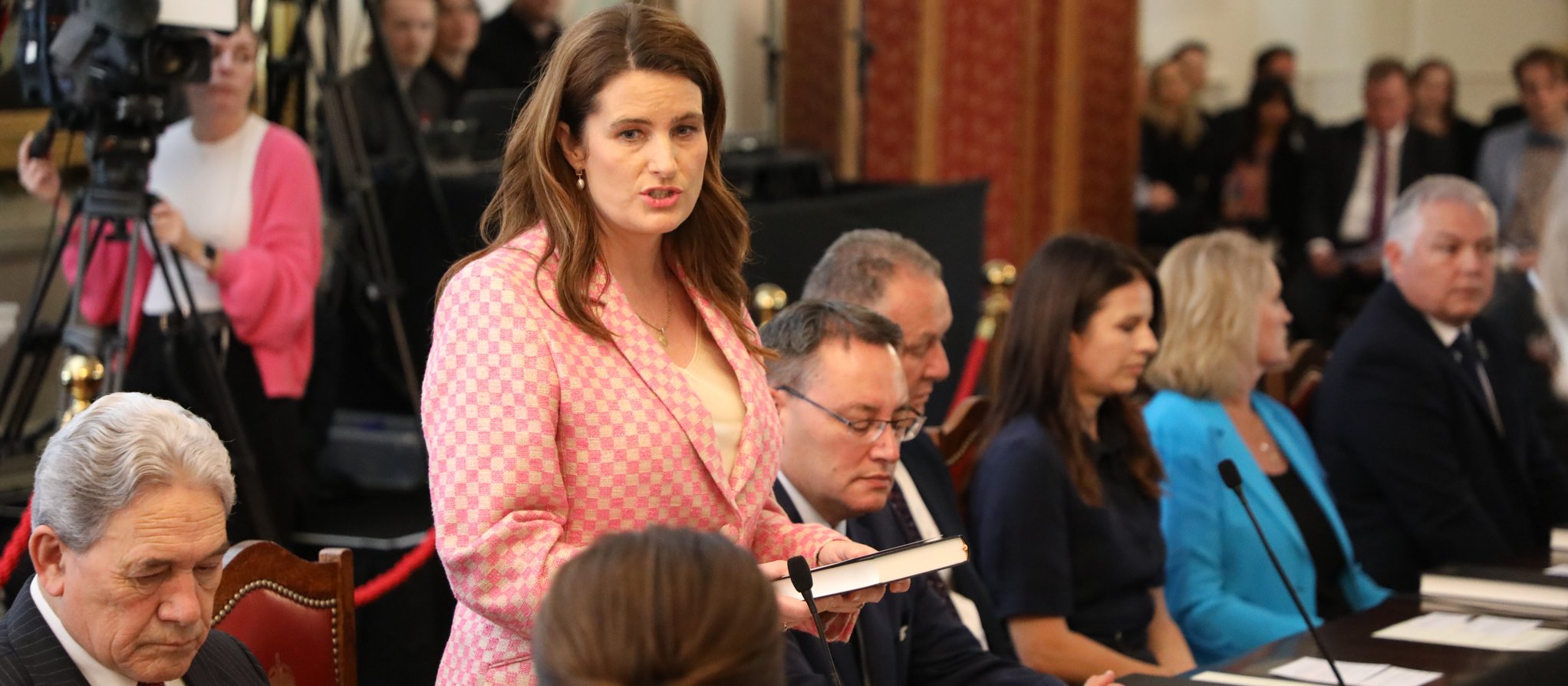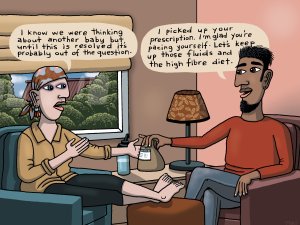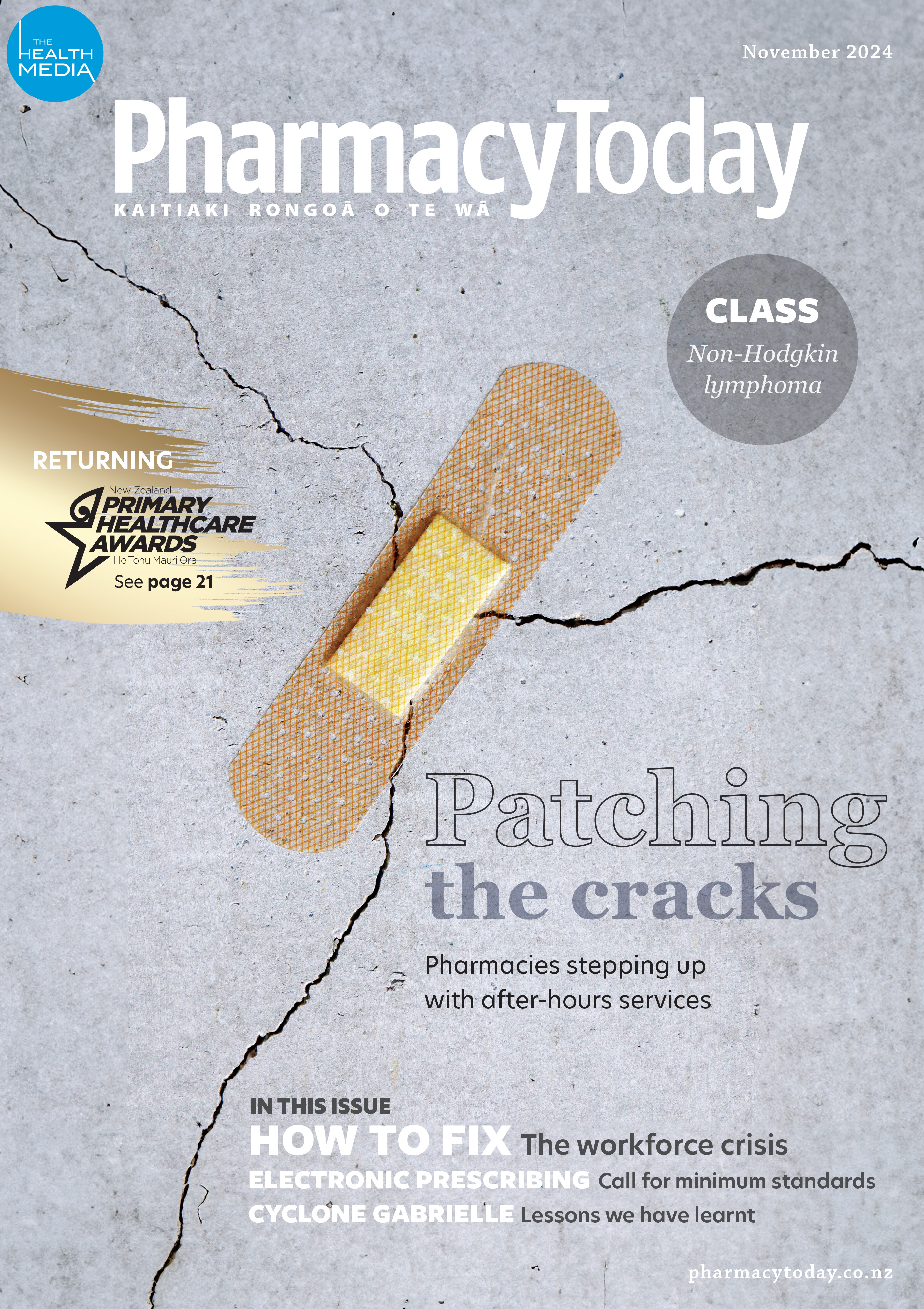Academic pharmacist Nataly Martini highlights the importance of understanding non-Hodgkin lymphoma and pharmacists’ roles in managing this condition
Prescription fees returning but little new for health in Budget
Prescription fees returning but little new for health in Budget

Jonathan Chilton-Towle reports following today's Budget lock-up in Wellington
We are committed to improving the frontline health services that New Zealanders rely on, with shorter wait times for assessment and treatment
The return of the $5 prescription fee for most people is the key change highlighted for health in Budget 2024.
The Coalition Government has followed through on its election campaign pledge to bring back the fee for everyone except Community Services Card holder and their dependents and people aged over-65.
As was the case before the previous Government removed the fee last year, households who pay for 20 prescriptions in a year will be given a prescription subsidy card that entitles them to free prescriptions for the rest of the year and prescriptions will be free for under-14s.
The Government estimates this will result in savings of $269.622 million over the next five years, of which $153.479 million is to be used to fund additional medicines, leaving a net saving of $116.143 million over the period.
National also pledged during the election that $280 million ringfenced from returning the fees was going to be put towards funding 13 cancer treatments over the same period but this measure is not included in the Budget today.
“We regret that it hasn’t been possible in this Budget,” finance minister Nicola Willis said in response to media questions after her speech at Parliament today, adding that the Coalition Government is committed to funding the 13 drugs in future years, although Pharmac’s independent decision making model creates challenges for this.
The fee will return from 1 July. Finance minister Nicola Willis gave a date of 15 July at the Budget briefing in Wellington, but health minister Shane Reti later confirmed the date as 1 July.
The total appropriation for Vote Health in 2024/ 2025 is $29.637 billion. In last year’s Budget, the estimated spend on Vote Health was $26.509 billion with the actual budgeted amount being about $28.202 billion.
Other than returning prescription fees, the health spend appears to mostly go towards funding existing health services. Big spends in health for 2024/ 2025 include:
- $14.611 billion (49 per cent of the Vote) to enable Te Whatu Ora to deliver hospital and specialist services, up from $12.720 billion (48 per cent) last year.
- $9.088 billion (31 per cent of the Vote) largely to enable Te Whatu Ora to deliver primary, community, public and population health services, up from $8.158 billion (31 per cent) last year.
- $3.281 billion (11 per cent of the Vote) for capital investment, largely for infrastructure projects and to fund the resolution of claims from historical non-compliance with the Holidays Act 2003, up from $3.071 billion (12 per cent) last year.
- $1.611 billion (5 per cent of the Vote) to enable Pharmac | Te Pātaka Whaioranga to both manage ($29 million) and purchase pharmaceuticals ($1.582 billion), up from $1.339 billion (5 per cent) last year
- $749 million (3 per cent of the Vote) to enable Te Whatu Ora to deliver hauora Māori services, compared with the $616 million (2 per cent) given to the now-disestablished Te Aka Whai Ora to manage these services last year.
- $229 million (1 per cent of the Vote) to enable the Ministry of Health to undertake its stewardship role of the health system
- $67 million to support other health services including $37 million for monitoring and protecting health and disability consumer interests and $25 million for problem gambling services.
Health minister Shane Reti says in a media release that Te Whatu Ora will get a funding boost of $16.68 billion across the next three Budgets. However, this boost will be across multiple years and not completed until financial year 2030/ 2031.
The boost consists of $5.72 billion over four years introduced in this Budget, $5.48 billion over four years on top of that in Budget 2025, and a final boost of $5.48 billion over four years in Budget 2026.
Budget documents say multi-year funding will allow Te Whatu Ora to better plan and deliver health services based on the amount of funding it knows will be available.
“Our government has set ambitious targets for the health sector. We are committed to improving the frontline health services that New Zealanders rely on, with shorter wait times for assessment and treatment,” Dr Reti says.
New initiatives coming in over the next four years include:
- $31.2 million to extend free breast screening to an addition 60,000 women per year
- $31 million for increased security at emergency departments
- $22 million to train 25 more doctors per year
- $24 million for the Gumboot Friday mental health counselling service
- $9.7 million to establish a national mental health and addiction community sector innovation fund
There have also been cuts that have found savings of about $37.38 million in the health sector in 2024/ 2025. These include:
- Returning the prescription fee with targeted exemptions, saves $23.780 million in 2024/2025
- Return of funding - disestablishment of Te Aka Whai Ora saves $1 million
- Reduction in “back-office functions” at the Ministry of Health saves around $12.6 million from 2024/2025. The areas cut are Equity, Evidence and Outcomes ($1.934 million), Policy Advice and Related Service ($2.197 million), Public Health and Population Health Leadership ($4.492 million), Regulatory and Enforcement Services ($3.069 million), and Sector Performance and Monitoring ($908,000).
Outside health, the Government has delivered on the tax cuts it promised during the election, spending around $3.71 billion per year on this.
Ms Willis estimates average income households with children will be about $78 better off per fortnight and working age New Zealanders better off by $32 per fortnight on average.





